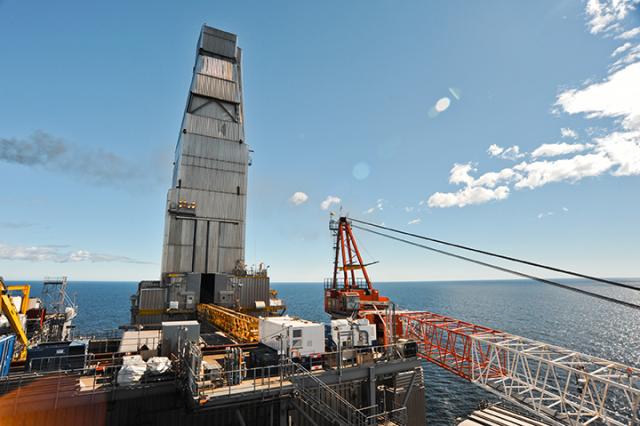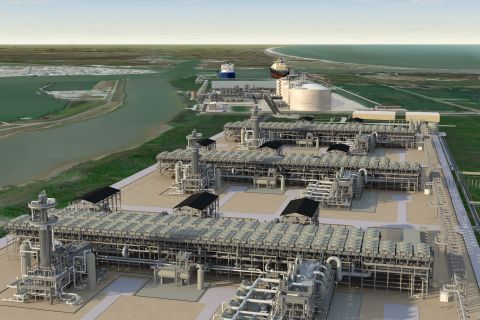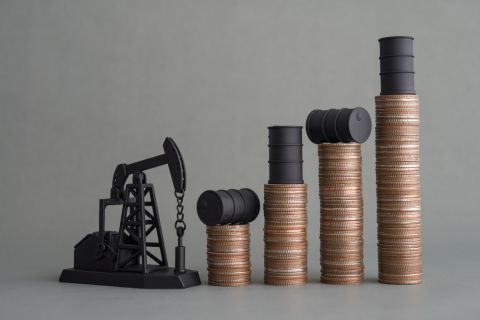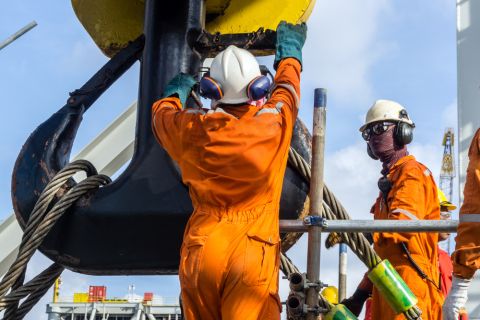
HOUSTON—Some of the world’s biggest oil and gas companies have defended U.S. federal oversight of methane emissions and made new commitments to control the leakage of the potent greenhouse gas from their operations.
This comes as President Donald Trump’s administration is moving to relax methane emission rules, as part of efforts to cut regulation and reverse Obama-era climate policies.
Gretchen Watkins, Royal Dutch Shell’s U.S. chair, said she was pushing for the Environmental Protection Agency to continue direct regulation of methane emissions.
“The agency is thinking about stripping out methane [from the 2016 rule],” she said in a statement. “I disagree. I want EPA to keep doing what it’s doing,”.
BP also said it stands by U.S. federal regulation of methane, adding it was working with the Environmental Defense Fund to develop technologies to improve the management of methane emissions from oil and gas facilities.
ExxonMobil, which was the first oil and gas major to come out in support of continued US federal regulation of methane leakage, said that 18 months after its shale subsidiary had launched an initiative to detect and repair leaks, it had seen a 40% reduction.
Methane is the main component of natural gas and is released into the atmosphere during oil and gas production by incomplete flaring or leaks in pipelines. While it breaks down faster than carbon dioxide, it is a bigger contributor to global warming.
Major energy companies have come under fire for staying silent as the Trump administration proposed rules that critics say would lead to higher methane emissions.
This week, the FT reported that BP, despite leading a sector-wide campaign to cut methane emissions, was part of efforts to weaken Obama-era EPA rules and pushed to revoke a separate Bureau of Land Management rule on methane flaring.
BP said: “We have consistently advocated for regulation of methane emissions by one federal agency—the Environmental Protection Agency—rather than an inefficient patchwork of different federal or state agencies”.
“The duplicative methane regulations by the Department of Interior’s Bureau of Land Management should be repealed and the EPA regulations should be kept in place but improved.”
While the EPA and BLM rules require the adoption of similar practices and technologies they were intended to address separate legal obligations and apply to different types of facilities.
The EPA rule sought to prevent air pollution—including methane emissions—and applies to facilities nationwide that were newly developed or modified after 2015.
The BLM regulation was adopted to prevent the waste of natural resources—such as gas—from facilities on publicly owned lands. This rule also limits unnecessary flaring. The rules would also, crucially, force companies to act rather than relying on voluntary efforts.
Big shareholders have criticised energy companies for backing lobbying positions that counter their public promises.
All three companies are part of the American Petroleum Institute (API) which has urged the EPA to cut “the burden of overlapping regulatory requirements” on methane, suggesting that “many state leak detection and repair programs are equally effective”, while federal regulations create “significant and duplicative record keeping and reporting”.
The EDF has described the API’s position as “increasingly out-of-step with industry leaders”.
API, like BP, has argued that the BLM rule was “redundant, technically flawed and unnecessary.”
Recommended Reading
Segrist: The LNG Pause and a Big, Dumb Question
2024-04-25 - In trying to understand the White House’s decision to pause LNG export permits and wondering if it’s just a red herring, one big, dumb question must be asked.
Texas LNG Export Plant Signs Additional Offtake Deal With EQT
2024-04-23 - Glenfarne Group LLC's proposed Texas LNG export plant in Brownsville has signed an additional tolling agreement with EQT Corp. to provide natural gas liquefaction services of an additional 1.5 mtpa over 20 years.
US Refiners to Face Tighter Heavy Spreads this Summer TPH
2024-04-22 - Tudor, Pickering, Holt and Co. (TPH) expects fairly tight heavy crude discounts in the U.S. this summer and beyond owing to lower imports of Canadian, Mexican and Venezuelan crudes.
What's Affecting Oil Prices This Week? (April 22, 2024)
2024-04-22 - Stratas Advisors predict that despite geopolitical tensions, the oil supply will not be disrupted, even with the U.S. House of Representatives inserting sanctions on Iran’s oil exports.
Association: Monthly Texas Upstream Jobs Show Most Growth in Decade
2024-04-22 - Since the COVID-19 pandemic, the oil and gas industry has added 39,500 upstream jobs in Texas, with take home pay averaging $124,000 in 2023.




